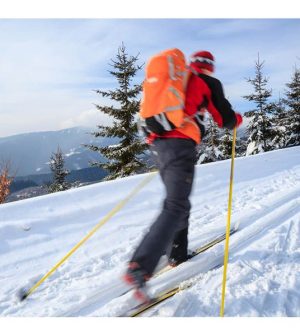- Are You Making This Expensive Thermostat Error This Winter?
- Recognizing the Signs of Hypothyroidism
- 10 Strategies to Overcome Insomnia
- Could Artificial Sweeteners Be Aging the Brain Faster?
- Techniques for Soothing Your Nervous System
- Does the Water in Your House Smell Funny? Here’s Why
- Can a Daily Dose of Apple Cider Vinegar Actually Aid Weight Loss?
- 6 Health Beverages That Can Actually Spike Your Blood Sugar
- Treatment Options for Social Anxiety Disorder
- Understanding the Connection Between Anxiety and Depression
Cold Weather Exercise Could Burn More Fat

If you want to burn fat this winter, take your exercise outdoors, researchers say.
A Canadian study suggests that vigorous exercise in cold weather may burn more fat than working out indoors.
Regular physical activity speeds metabolism and helps regulate fat in the blood (“lipids”), and high-intensity training is better for burning fat than moderate-intensity exercise, the researchers said. Temperature also plays a role in metabolism during exercise.
In the study, a group of moderately fit, overweight adults participated in two high-intensity exercise sessions. In both, they completed 10 one-minute cycling sprints at 90% effort. A 90-second recovery period of cycling at 30% effort followed each sprint.
In one session, the temperature was about 70 degrees Fahrenheit (“thermoneutral”). In the other session, it was 32 degrees Fahrenheit.
During both sessions, the researchers measured participants’ skin temperature, core body temperature, heart rate and the amount of oxygen delivered to the large thigh muscle.
“The present study found that high-intensity exercise in the cold increased lipid oxidation by 358% during the exercise bout in comparison to high-intensity exercise in a thermoneutral environment,” according to the report published online recently in the Journal of Applied Physiology.
Longer-term metabolic responses after eating a high-fat meal did not change substantially after the cold condition, the researchers noted in a news release from the American Physiological Society.
The lead researcher was Stephanie Munten of the School of Human Kinetics at Laurentian University in Sudbury, Ontario, Canada.
More information
For more about the benefits of exercise, visit the U.S. National Library of Medicine.
SOURCE: American Physiological Society, news release, Dec. 22, 2020
Source: HealthDay
Copyright © 2026 HealthDay. All rights reserved.










